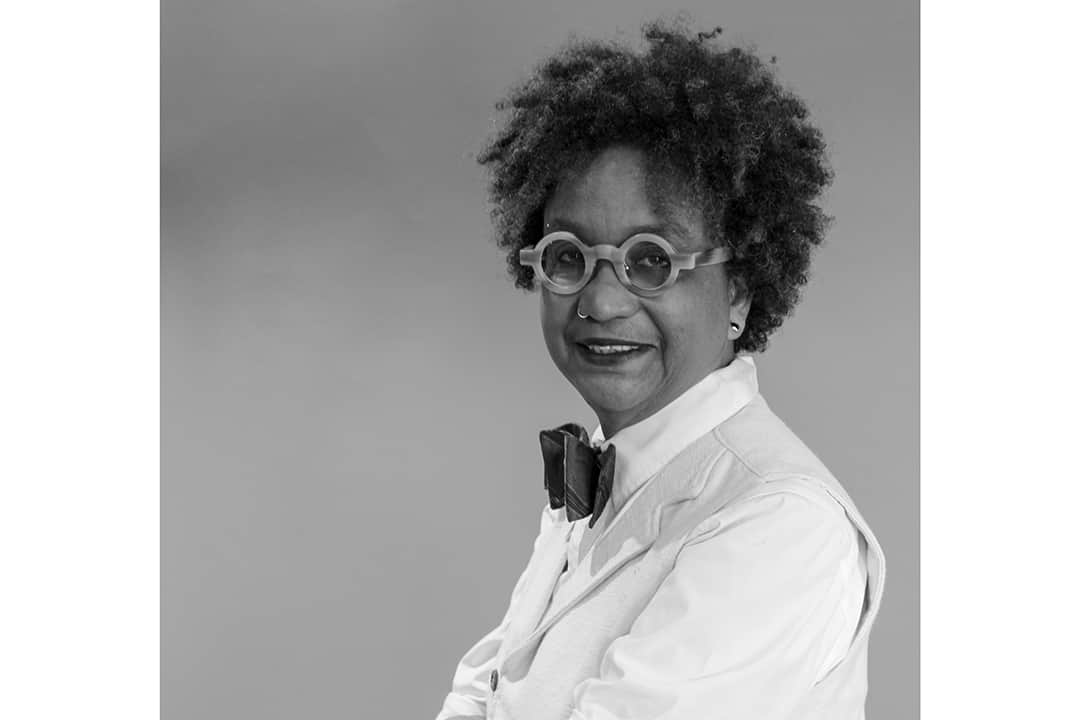Professor Beverly Bain, an associate professor and a scholar of Women, Gender and Sexuality Studies at UTM, is an activist who teaches topics including Caribbean and Black feminist activism, colonialism, and anti-capitalism. Her scholarship draws on her work with feminist and LGBTQ+ activists, as well as her experiences as a Black queer woman. Through her teaching, she encourages students to approach their world through a critical and creative lens.
Outside of the classroom, Professor Bain writes and speaks internationally on anti-Black racism, police violence, and LGBTQ+ issues.
She received the 2005 inaugural Steinert and Ferreiro Award of Excellence for her work. The award recognizes individuals whose work in the arts or sciences has significantly contributed to LGBTQ+ acceptance and understanding in the GTA. Professor Bain also received U of T’s Academic and Research Award as part of the 2020 International Day for the Elimination of Racial Discrimination.
In an interview with The Varsity, Professor Bain discussed her past and present activism and her inspiration. She also highlighted the need for change in academia and the world at large.
Past and present activism
“I’ve been a feminist activist, first and foremost, for more than 40… years of my life,” said Professor Bain. Having seen the development of the Caribbean Black Power movement as a teenager in Trinidad, Professor Bain was inspired to begin actively working against police violence after moving to Canada to attend U of T.
Over the next decades, she worked extensively in women’s shelters, became a member of the Communist Party of Canada, and continued her activism in conjunction with the National Action Committee on the Status of Women.
Currently, Professor Bain serves as a convener and member of the planning committee for Scholar Strike Canada, an abolitionist organization protesting police brutality against Black, Indigenous, and racialized people in Canada and the US.
After years of work in activism, Professor Bain arrived at her current goal of “working for an abolitionist future.” As she envisions it, this means “the end to all carceral institutions: the end to policing, to prisons, to the way in which mental health and [forms of childcare like] Child Services and all of these institutions actually surveil and incarcerate and punish women, in particular, and [especially] Black, racialized, poor women.”
Women’s unique hardships in academia
As a professor at U of T, Professor Bain has observed many ways that biases against women, and particularly women of colour, play out in the university setting. “We end up doing most of the work on committees, in departments, [and] around hiring,” she said.
She said that for racialized women, the weight is heavier. “We’re not necessarily always seen as bringing the kind of intellectual knowledge and expertise as white academics.”
Such biases also contribute to the undermining of women’s teachings, particularly in humanities where others don’t always take their work to be rigorous and academic. “We’re always in this situation where we find ourselves working twice as much and twice as hard,” said Professor Bain.
Despite these challenges, Professor Bain commends those working to resolve these issues. “Feminists in the university have been really challenging the institution,” she said. “We continue to do that every day with the knowledge we bring, with the empathy that we bring, with the desires that we bring, and with the anger that we bring when things don’t go the way they’re supposed to go.”
She stressed the importance of “creating spaces for [women]” inside these institutions and not simply buying into the patriarchal culture to blend in.
Professor Bain also gave advice to those entering these less-than-perfect institutions. “I think it’s really important for women in male-dominated fields to be very clear about the kind of environment that they’re in, number one: why they are there, what they’re there for,” she said.
Inspiration
As someone who has been involved in organizing for 40 years, Professor Bain derives inspiration from her foremothers. Professor Bain reflected on how much she’s benefitted from women in Canada. “What they have left behind, in terms of their work, their energies, their spirit, their determination and resilience and love for women, continue to inspire me. And I try to bring that with me, throughout the work that I do: into my classrooms, into my teaching, and in my everyday life.”
“Women have been on the front line of freedom struggles everywhere,” said Professor Bain. “Women have been the ones who have taken to the streets.”
— With files from Elizabeth Shechtman


